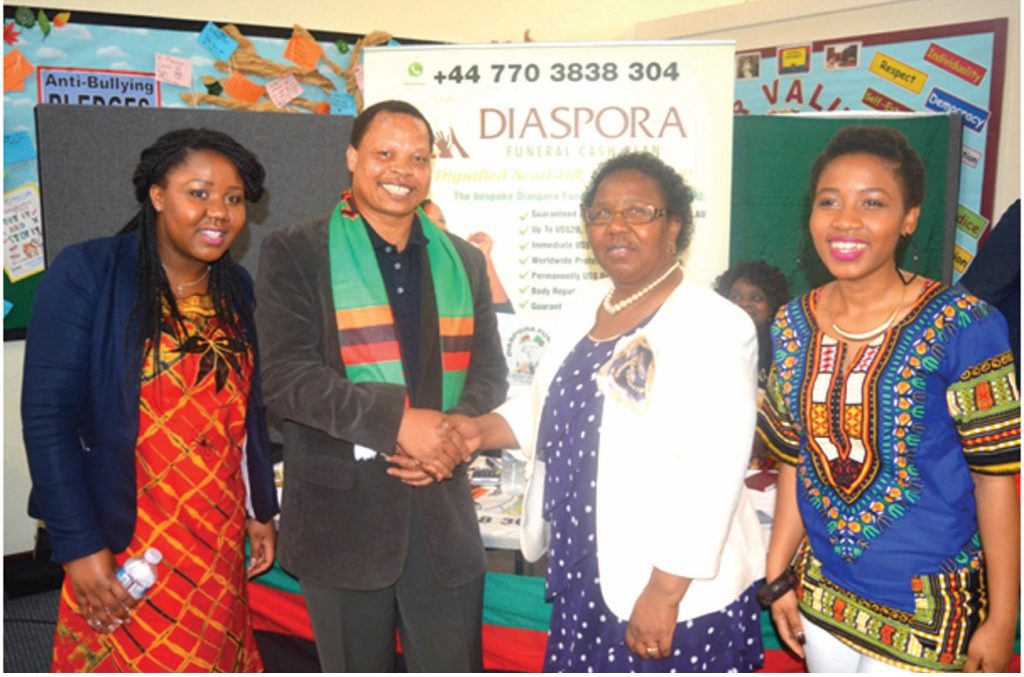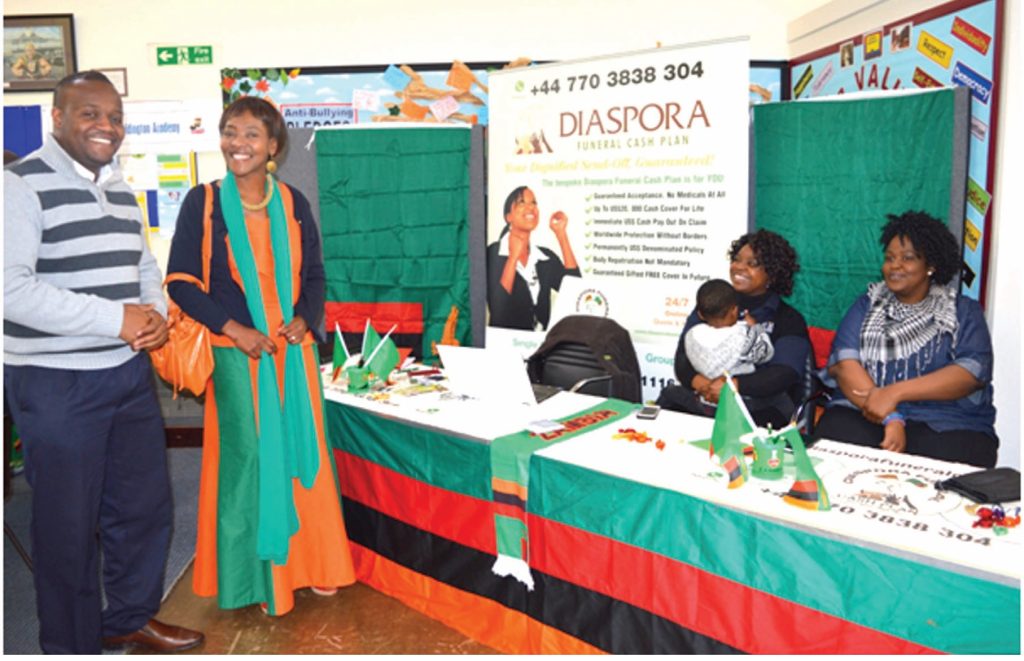By Austin Kaluba
If there is something that scares African diasporans in Europe, it is how and where they would be buried.
While back home this is also a problem, in a foreign land the thoughts of one’s remains being deposited in an unfamiliar place away from home is scary.
For diasporans, there are usually two ways of finally returning home, either as an unaccompanied corpseand,for those who are lucky,accompanied.
However, for the unfortunate many, they are undignifiedly buried by authorities in the host country, usually at unmarked graves.
What many diasporans, especially the first generation of immigrants, know is that although they live abroad, they emotionally and culturally do not belong to their new homes.
At whatever stage, many know that their ties are back home in Africa. An emotional event like death reminds them of this cruel truth, explaining why they usually desire to be buried home.
Despite this realisation, being buried home comes with financial costs of transporting the body home, sometimes evenbearing the cost of running two funerals; one in the Diaspora and another back home.
This also explains why oftentimes when an African diasporan dies, his friends and relatives literally become beggars, pleading for financial assistance to send the body home.
The list of Africans who die in the Diaspora is endless. Some die in neighbouring African countries, and others as far afield as New Zealand, Australia, the USA and Europe.
The main costs that the Diasporas face in the event of death include body repatriation, flight costs for people (family or friends) to accompany the body back to motherland and cost of a coffin or casket.
Other funeral costs include freight costs for shipping personal effects of the deceased and in many cases some Diasporas have to meet the funeral costs back home.
To cushion this problem, Jeff Madzingo, the Chief Executive Officer (CEO) of Diaspora Insurance has become a household name among Africans in the UK for the work he has been doing in easing the burden that comes with dying abroad.
Born and bred in Gutu, rural in Masvingo province, Zimbabwe, he worked as a banker after finishing his studies before moving to the UK for a post-graduate programme on a British Council scholarship.
Eventually he got professional qualifications in mortgages and insurance and started a business which helped thousands of diasporans buy their first homes while others were able to establish property portfolios of their own.
After the mortgage business, Madzingo founded an innovative insurance product, the bespoke Diaspora Funeral Cash Plan, which has remained the flagship product of Diaspora Insurance.
Diaspora Insurance specialises in the marketing and distribution of insurance products and risk management solutions which cater for African expatriates.
Now a multi-million-dollar business, the company has helped thousands of African diasporans give themselves and their loved ones a dignified send off.
Diaspora Funeral Cash Plan covers Africans originating from 13 African nationalities, living and working in developed markets like the UK, EU, New Zealand, Australia and North America.
It also covers Botswana, Ethiopia, Eswatini, Ghana, Kenya, Malawi, Namibia, Mozambique, South Africa, Tanzania, Uganda, Zambia, Zimbabwe with plans underway to add more countries.
Many Zambians in the UK who didnot have such a scheme have benefitted massively from the Diaspora Funeral Cash Plan.
“I didn’t know what I could have done to send the body of my brother Anthony back home if it wasn’t for the plan,” said Mr Justin Mwamba of Luton.
“A Malawian friend Mr Bamanta told me about
Diaspora Funeral Cash Plan that cushioned what could have been a nightmare.”
Mr Mwamba called on other Zambians to plan for the future by registering with the plan which he said would cushion the challenges that come with funerals abroad.
“I think the similarities in African cultures has made the company run by a Zimbabwean understand the cultural concepts affecting funerals back home. For Zambians and Malawians, they should remember that we were one country with Zimbabwe for ten years from 1953 to 1963 during the Federation of Rhodesia and Nyasaland. This means our history is similar not to talk of cultural norms,” he said.
Susan Mubita, who lives in London, praised the scheme for lessening the burdens of funeral expenses of her late sister Inonge that would have been prohibitive in the UK.
“The Diaspora Funeral Cash Plan is flexible and affordable to many Africans living in the UK. People should know that saving for such a noble exercise is welcome,” Ms Mubita said.
“We save for weddings, holidays and other events. The most important saving we should consider is saving for the time we leave this world.”
The work of the Diaspora Insurance was explained even better by another beneficiary, Martin Kapami, whose wife Bessie Simbayi Kapami was repatriated from the UK to Zambia using the scheme.
Mr Kapami, who joined the scheme eight years ago, flew to Zambia via Emirates with three family members to Zambia to bury his wife.
“I stumbled on Diaspora Insurance at the funeral of a female Zambian in the UK during a church service. I met a Zimbabwean woman whom I asked questions about the scheme. I got interested and asked her to include Zambia since we are one people who face the same challenges during such bereavements,’” he said.
Despite Mr Kapami travelling to Zambia during the Covid-19 pandemic, the scheme ensured all the regulations were addressed to ensure the family buried their loved one back home.
“After checking that I was up-to-date with the premium, they transferred the money to my account that enabled me to foot all funeral expenses. Of all insurance companies doing this job in the UK, I recommend the Diaspora Insurance because its terms are flexible and highly affordable,” he said.
Mr Kapami urged other Zambians to join the scheme and discard the cultural norm of not planning for death, which many wrongly believe attracts death.
Diaspora Insurance is even involved in corporate social responsibility as evidenced when it engaged Mumba Trust in Zambia to donate to K10,000to Mumba Children’s Project as a Christmas treat to children at a community school in Mpongwe recently.
Mumba Children’s Project received Christmas groceries and the children, most of them hailing from disadvantaged families, were feted. The gesture was extended to the surrounding community, especially the disabled.
Catherine Mudenda, the head of Mumba Children Project thanked Diaspora Insurance for donating balls for football and netball teams at the school.
UK-based Hilda Mulenga, who is the director and founder of the project, was happy with the extension of the assistance to vulnerable children at the community school.
Needless to say, Diaspora Insurance knows its beneficiaries both in the UK and in Zambia.
“In the Diaspora the level of trauma is unexplainable. When you lose a loved one in the Diaspora, you suddenly realise that you have to mourn for your loved one and still manage all the processes to ensure that your loved one is repatriated for a dignified burial back home,” said Mr Madzingo.
He said in the African culture, there is always communal existence where people give each other moral, emotional and material support.
This support becomes even more vital to send off a loved one to the afterlife.








